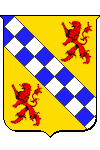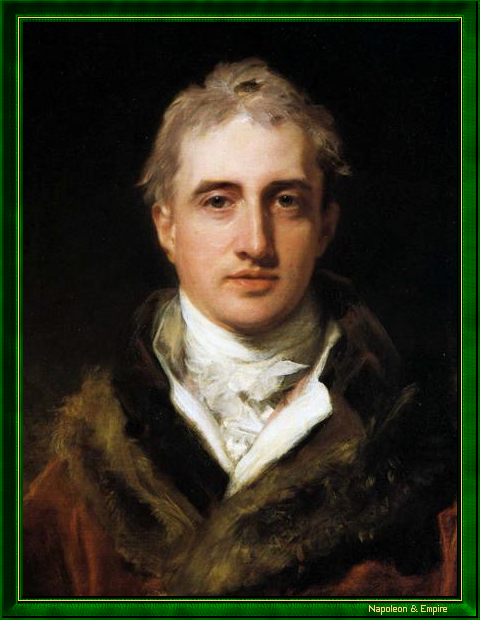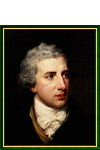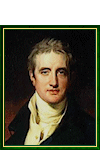Robert Stewart Castlereagh
Marquis of Londonderry, Viscount Castlereagh

Robert Stewart Castlereagh was born in Dublin on June 18, 1769, into a British aristocratic family settled in Ireland.
Elected to the island's Parliament in 1790, he became Keeper of the Privy Seal for Ireland in 1797, bloodied the insurrection the following year and entered the English Parliament.
Following the Act of Union, which abolished Irish autonomy in 1800, Henry Addington entrusted Viscount Castlereagh with his first ministerial portfolio (1802). In 1805, William Pitt the Younger made him his Minister of War and the Colonies. After a year of opposition following Pitt's death, Castlereagh returned to the War Office from April 1807 to September 1809.
In this role, he shared responsibility with the Foreign Secretary, George Canning, for the bombardment of Copenhagen and support for the Spanish insurgents. A pistol duel between the two men, though members of the same government, and the failure of the landing at Walcheren (Holland, July to September 1809), led to his resignation.
Castlereagh returned to office in March 1812 as Foreign Minister, a post he held until his death. His first task was to put together the coalition that would defeat the Empire. At every opportunity, he proved to be Napoleon I's most bitter enemy, doing his utmost to avoid an agreement at the Châtillon Conferences in 1814.
The Congress of Vienna saw him share with Clemens von Metternich a dominant influence on the redrawing of Europe. Unlike his Austrian counterpart, however, he opposed the Holy Alliance conceived by Tsar Alexander I, seeing it as nothing but mysticism and foolishness.
Once Napoleon was deported to St. Helena, Castlereagh rejected all requests to make the prisoner's detention more bearable. He approved the vexatious measures decided by Lord Bathurst, the Minister of War and the Colonies, which Hudson Lowe simply applied indiscriminately.
Castlereagh's conservative policies and the brutal repression he either supported or indulged in (suspension of Habeas Corpus in 1817, Peterloo massacre in 1819) earned him fierce criticism, which perhaps explains his suicide. Fear of prosecution for homosexuality may have been another reason, unless his act was the consequence of the mental imbalance he showed towards the end of his life. Whatever the reason, on August 18, 1822, in London, he cut his own throat with a letter opener.
"Robert Stewart Castlereagh".

At the Congress of Vienna, Castlereagh succeeded in obtaining a ban on the slave trade. By promising to support this measure, Maurice de Talleyrand-Périgord, Minister of Foreign Affairs of a defeated France, succeeded in inviting himself to the negotiating table of the victors.
Other portraits

"Robert Stewart Castlereagh".

"Robert Stewart Castlereagh".